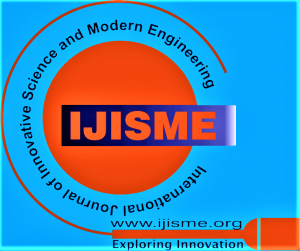![]()
Power Quality Enhancement by using Distributed Power-Flow Controller in Distribution Systems
Karthik Korvi1, Jisha Bhubesh2, R. Shirisha3
1Karthik Korvi, PG student, CMRCET, Hyderabad
2Jisha Bhubesh, Asst Professor, CMRCET
3R.Shirisha, Asst Professor, CMRCET
Manuscript received on February 04, 2013. | Revised Manuscript received February 11, 2013. | Manuscript published on February 15, 2013. | PP: 1-8 |Volume-1 Issue-3, February 2013. | Retrieval Number: C0143020213/2013©BEIESP
Open Access | Ethics and Policies | Cite
© The Authors. Published By: Blue Eyes Intelligence Engineering and Sciences Publication (BEIESP). This is an open access article under the CC BY-NC-ND license (http://creativecommons.org/licenses/by-nc-nd/4.0/)
Abstract: This paper presents a new component within the flexible ac-transmission system (FACTS) family, called distributed power-flow controller (DPFC). The DPFC is derived from the unified power-flow controller (UPFC). The DPFC can be considered as a UPFC with an eliminated common dc link. The active power exchange between the shunt and series converters, which is through the common dc link in the UPFC, is now through the transmission lines at the third-harmonic frequency. The DPFC employs the distributed FACTS (D-FACTS) concept, which is to use multiple small-size single-phase converters instead of the one large-size three-phase series converter in the UPFC. The large number of series converters provides redundancy, thereby increasing the system reliability. As the D-FACTS converters are single-phase and floating with respect to the ground, there is no high-voltage isolation required between the phases. Accordingly, the cost of the DPFC system is lower than the UPFC. The DPFC has the same control capability as the UPFC, which comprises the adjustment of the line impedance, the transmission angle, and the bus voltage. The principle and analysis of the DPFC are presented in this paper and the corresponding experimental results that are carried out on a scaled prototype are also shown.
Keywords: AC–DC power conversion, load flow control, power electronics, power semiconductor devices, power system control, power-transmission control.
